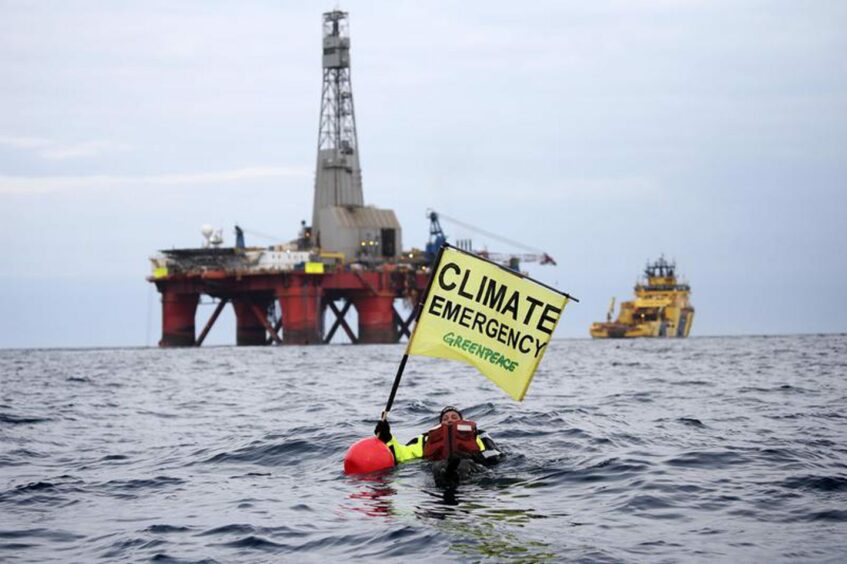
Environmental campaign group Greenpeace has vowed to appeal after it lost a legal challenge against a new major UK oil and gas licensing round.
Greenpeace and fellow campaign group Uplift launched a legal challenge against the 33rd North Sea oil and gas licensing round, arguing the UK government “failed to properly assess the climate impact” of the new round and failed to properly consider “reasonable alternatives”.
But in a judgement handed down by the High Court on Thursday, October 19, the court dismissed the challenge.
Following the decision, Greenpeace said it would investigate options for an appeal.
In a statement, Greenpeace said allowing a “drilling frenzy in the North Sea on this scale will bring more climate damage while doing nothing to help lower energy bills or boost UK energy security”.
Environmental campaigners criticise decision
Greenpeace UK climate campaigner Philip Evans said the group hopes the decision would be overturned on appeal.
“If you told most people that the government is allowed to approve new oil and gas while ignoring 80% of the emissions it would produce, they simply wouldn’t believe you,” Mr Evans said.
“This is completely irresponsible behaviour from ministers during a climate crisis.
“More oil and gas drilling will just make oil giants richer and the climate crisis worse.”
Uplift executive director Tessa Khan called the ruling a “deeply disappointing decision”.
“Not just in terms of the harm that new drilling will do to the climate and Britain’s marine life, but also because of what it means for UK households and oil and gas workers,” Ms Khan said.
“There is no public benefit from new licensing, only more profit for oil and gas companies.
“All new licensing does is signal that the UK is not interested in transitioning to cheaper, clean renewable energy, which is the only way we will permanently lower energy bills and provide workers with secure jobs.”
Licensing round ‘false hope’
Ms Khan said government claims new North Sea exploration would increase energy secretary were false.
“Most of what’s left in the basin is oil, most of which we export,” she said.
“This government is giving people false hope when what we need is genuine solutions to the ongoing energy crisis.
“It’s obvious we must reduce our dependence on gas by tackling energy waste through insulation, and rapidly scaling up our cheap homegrown renewables.”
A Department for Energy Security and Net Zero spokesperson told Reuters the government welcomed the ruling.
“The industry is critical to strengthening our energy security – unlocking new technologies such as carbon capture and hydrogen opportunities – and will reduce our reliance on imports while supporting hundreds of thousands of jobs and growing the economy,” the spokesperson said.
The North Sea Transition Authority said it received a total of 115 applications, covering 258 blocks and part-blocks, have been tabled by 76 companies as part of the licensing round.



